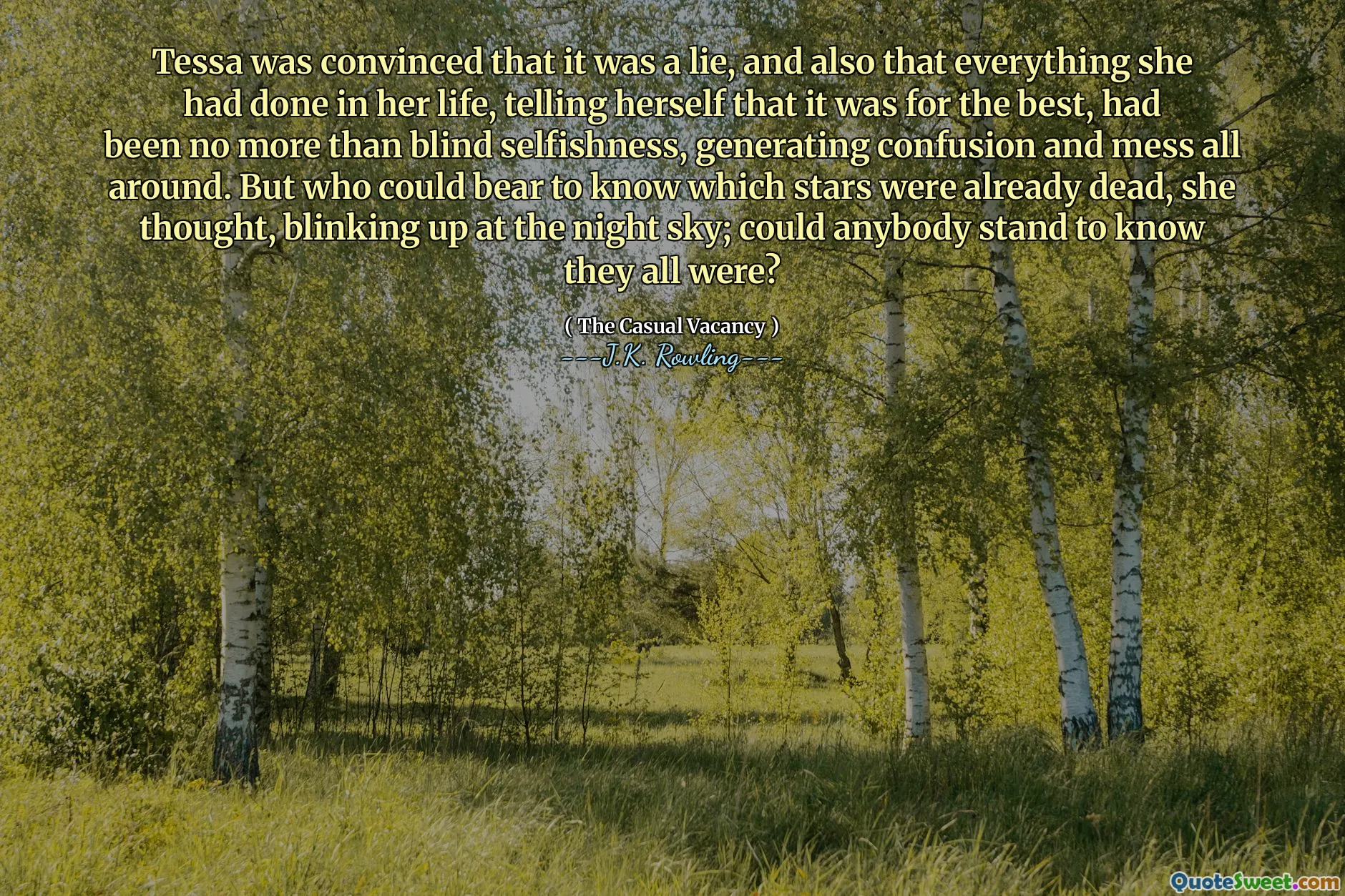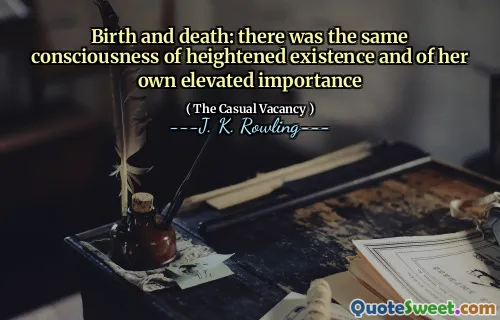
Tessa was convinced that it was a lie, and also that everything she had done in her life, telling herself that it was for the best, had been no more than blind selfishness, generating confusion and mess all around. But who could bear to know which stars were already dead, she thought, blinking up at the night sky; could anybody stand to know they all were?
This passage delves deeply into themes of self-deception, regret, and the painful truths we often choose to ignore. Tessa's realization—that her actions, disguised under the guise of doing what was "for the best," might actually have been selfish—forces her to confront a brutal honesty about her past choices. It exposes the complexity of human motivation: how intentions and outcomes can diverge profoundly, leading to unintended pain and disorder.
The metaphor of stars already dead illuminates a universal human experience—the fear of confronting harsh realities that undermine our illusions. Just as stars from distant light sources may no longer shine but still appear bright to us, so too do we cling to comforting fictions about ourselves and our lives rather than face discomforting truths. The rhetorical question, "could anybody stand to know they all were?" echoes a collective ambivalence toward total transparency, suggesting that some ignorance might be preferable for emotional survival.
Through this reflection, the author prompts readers to ponder the nature of truth and self-awareness. It challenges us to consider the consequences of our self-justifications and the importance of authentic reckoning, even when it brings pain. The passage speaks to the inherent tension between accepting reality and protecting oneself from its harsh implications, a tension that defines much of the human condition. In essence, it captures the poignancy of looking up at the night sky—searching for light and hope while battling the shadows of inevitable loss.







